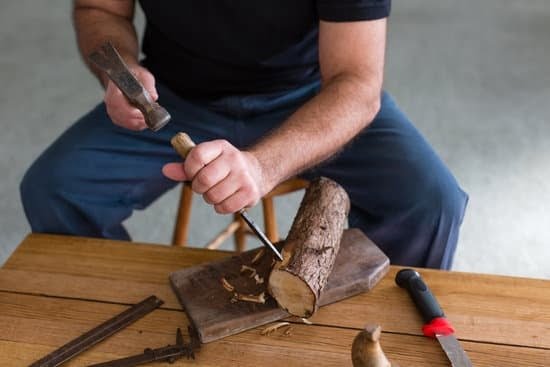What tools should every woodworker have? Having the right tools is crucial for every woodworker as it can make a significant difference in the quality and efficiency of their work. Whether you are a beginner or a seasoned professional, having the essential tools will not only enhance your woodworking skills but also ensure your safety in the workshop.
When it comes to woodworking, having a set of essential hand tools is indispensable. Tools such as chisels, hand saws, planes, and carving tools are fundamental for shaping and refining wood pieces. These hand tools allow woodworkers to achieve precision and detail in their projects that may not be possible with power tools alone.
In addition to hand tools, power tools play a vital role in modern woodworking. Table saws, drills, sanders, and routers are among the essential power tools that every woodworker should own. These power tools enable woodworkers to work more efficiently and effectively, allowing them to tackle larger projects with ease.
Essential Hand Tools
Woodworking is a craft that requires precision, patience, and the right tools. When it comes to hand tools, there are several essentials that every woodworker should have in their toolkit. These tools not only help in shaping and detailing wood but also provide a hands-on experience that enhances the overall woodworking process.
Here are some must-have hand tools for every woodworker:
- Chisels: Essential for carving out intricate details and creating mortise and tenon joints.
- Hand Saws: From crosscut saws to dovetail saws, these tools are crucial for cutting precise angles and shapes.
- Planes: Whether it’s smoothing rough surfaces or adjusting thickness, planes play a vital role in achieving a polished finish.
- Carving Tools: Perfect for adding decorative elements or sculpting intricate designs on wooden surfaces.
Investing in quality hand tools is essential for any woodworker looking to elevate their craft. Not only do these tools provide versatility and precision, but they also offer a sense of satisfaction and control over the woodworking process. Whether you’re a beginner or seasoned professional, having the right hand tools can make all the difference in your projects.
To enhance your woodworking arsenal, prioritize acquiring these essential hand tools to tackle various tasks with confidence and finesse. Remember, having the right tools at your disposal can make woodworking not just a hobby but a fulfilling creative endeavor.
Power Tools
In addition to a table saw, a drill is another indispensable power tool for woodworkers. Whether it’s drilling pilot holes, driving screws, or creating pocket holes, a drill is essential for almost every woodworking project. Cordless drills offer convenience and portability, allowing woodworkers to work on projects anywhere in the workshop.
Sanders are also crucial power tools for smoothing out rough surfaces and preparing wood for finishing. Belt sanders, random orbit sanders, and detail sanders provide different levels of abrasion for various woodworking needs.
Furthermore, routers are invaluable power tools that every woodworker should own. Routers can be used for shaping edges, cutting grooves, creating joinery, and even carving intricate designs. With the right router bits and accessories, woodworkers can unleash their creativity and achieve precise results in their projects. Investing in high-quality power tools not only enhances woodworking capabilities but also ensures safety and efficiency in the workshop.
| Power Tool | Function |
|---|---|
| Table Saw | Versatile cutting tool for ripping, cross-cutting, and making dado cuts |
| Drill | Essential for drilling holes, driving screws, and creating pocket holes |
| Sanders | Used for smoothing rough surfaces and preparing wood for finishing |
| Routers | Ideal for shaping edges carving designs ,creating joints & groovea etc. |
Measuring and Marking Tools
Accurate measurements are essential in woodworking, as even the slightest miscalculation can lead to costly mistakes. That is why having the right measuring and marking tools is crucial for every woodworker. Here are some must-have tools that will help ensure precision in your projects:
- Tape Measures: A reliable tape measure is a woodworker’s best friend when it comes to taking accurate measurements. Whether you need to measure the length of a board or determine the dimensions of a piece, a tape measure is indispensable.
- Squares: Squares are essential for checking the accuracy of cuts and angles in woodworking. A combination square, framing square, or speed square can help ensure that your project pieces are cut and assembled correctly.
- Marking Gauges: Marking gauges are used to create precise lines on wood to indicate where cuts should be made. They come in various styles, such as cutting gauges, mortise gauges, and wheel gauges, each serving a specific purpose in woodworking.
In addition to these basic measuring and marking tools, there are other accessories that can aid in achieving accuracy and efficiency in woodworking projects. Digital calipers can provide precise measurements for fine detailing work, while angle finders help determine precise angles for miter cuts. By investing in quality measuring and marking tools, woodworkers can ensure their projects turn out exactly as intended.
Remember that using these tools accurately requires practice and attention to detail. Taking the time to measure twice and cut once will save you from costly mistakes down the line. With the right measuring and marking tools at your disposal, you can tackle woodworking projects with confidence and precision.
Safety Equipment
Woodworking can be a rewarding and fulfilling hobby or profession, but it also comes with potential risks that should not be overlooked. Ensuring proper safety measures are in place is crucial for every woodworker, no matter their skill level. One of the most important aspects of woodworking safety is having the right safety equipment on hand to protect against accidents and injuries.
The Importance of Safety Gear
Safety glasses are an essential piece of safety equipment for woodworkers as they protect the eyes from flying wood chips, dust, and debris. An accidental splinter or wood chip in the eye can cause serious injury and even permanent damage, making safety glasses a must-have item in any woodworking shop.
In addition to safety glasses, ear protection is also crucial to prevent hearing loss from prolonged exposure to noisy power tools. Noise levels in a workshop can reach damaging levels over time, so investing in quality ear protection is key.
Protecting Your Lungs
Another important piece of safety gear for woodworkers is a dust mask or respirator to protect against inhaling harmful dust particles. Wood dust can be a respiratory irritant and may contain toxins that can lead to serious health issues if not properly filtered out.
Wearing a dust mask or respirator when working with wood, especially when sanding or cutting, is essential for protecting your lungs and overall health. By prioritizing safety equipment like safety glasses, ear protection, and dust masks, woodworkers can create a safer work environment and reduce the risk of accidents and health problems down the line.
Workbench and Clamps
Importance of a Sturdy Workbench
Having a sturdy workbench is essential for every woodworker as it serves as the foundation for all woodworking projects. A stable and flat work surface not only provides a reliable platform for cutting, sanding, and assembling but also enhances precision in woodworking tasks. When selecting a workbench, consider factors such as size, weight capacity, material, and additional features like storage shelves or built-in vises to suit your specific woodworking needs.
Types of Clamps for Woodworking Projects
Clamps are indispensable tools in woodworking that help secure pieces of wood together during glue-ups, assembly, or when working on intricate details. There are various types of clamps available, each designed for specific purposes. Some common types of clamps include bar clamps, pipe clamps, parallel clamps, spring clamps, and C-clamps. It’s essential to have an assortment of clamps in your workshop to tackle different projects effectively.
Recommendations for Choosing Clamps
When selecting clamps for your woodworking projects, consider factors such as jaw opening capacity, throat depth, and pressure distribution to ensure optimal performance. Invest in high-quality clamps that provide adequate pressure without damaging the wood surface. Additionally, having a variety of clamp sizes and styles will enable you to handle various project sizes and complexities with ease. Properly maintained and organized clamps will enhance your workflow efficiency and contribute to the overall success of your woodworking endeavors.
Sharpening Tools
Sharpening your woodworking tools is crucial to ensure precision and efficiency in your projects. Dull tools not only make the task more challenging but also compromise the quality of your work. That’s why it’s essential for every woodworker to have the right sharpening tools in their arsenal.
One of the primary tools you should have is a sharpening stone, which comes in various materials like diamond, ceramic, or natural stones. These stones help maintain a sharp edge on your chisels, planes, and other cutting tools.
Another indispensable sharpening tool for woodworkers is a honing guide. A honing guide assists in keeping a consistent angle while sharpening your tools, resulting in uniform and sharp edges. It’s especially beneficial for beginners who are still mastering the art of sharpening their woodworking tools. By investing in a quality honing guide, you can ensure that your tools are always in top condition and ready for use whenever needed.
In addition to sharpening stones and honing guides, having a strop in your workshop can further enhance the sharpness of your woodworking tools. A strop is typically made of leather and is used to polish and refine the edges of your chisels, plane blades, and carving tools after using a sharpening stone. This extra step can make a significant difference in the sharpness and durability of your woodworking tools, allowing you to work with precision and achieve professional results.
| Sharpening Tools | Recommended Options |
|---|---|
| Sharpening Stone | Diamond stone |
| Honing Guide | GuidePro Honing Guide |
| Strop | Leather strop with compound |
Storage and Organization
One of the most crucial aspects of being a successful woodworker is not just having the right tools, but also knowing how to store and organize them efficiently. Without proper storage and organization, your workspace can quickly become cluttered and chaotic, making it challenging to find the tools you need when working on a project. To ensure a clean and clutter-free workspace, there are several tips and strategies you can implement to keep your woodworking tools in order.
One of the first steps in organizing your woodworking tools is to establish a designated storage area for them. Whether it’s a toolbox, a tool cabinet, or a pegboard on the wall, having a specific place for each tool ensures that everything has its proper spot. This not only makes it easier to find what you need but also helps prevent tools from getting lost or misplaced.
Another important aspect of efficient tool storage is proper labeling. By clearly labeling the storage location for each tool, you can quickly identify where things belong and maintain order in your workspace. Additionally, consider investing in drawer dividers, tool trays, or magnetic strips to keep smaller items like screws, nails, and drill bits organized within your storage system. By incorporating these organizational tools into your workshop setup, you can streamline your workflow and focus more on creating beautiful woodworking projects.
Lastly, regular maintenance of your storage system is key to ensuring a clean and clutter-free workspace. Take the time to periodically review and rearrange your tools based on usage frequency or project requirements. By staying organized and maintaining a tidy workspace, you’ll not only increase efficiency in your woodworking endeavors but also prolong the lifespan of your valuable tools.
Conclusion
In conclusion, the key to woodworking success lies in having the right tools at your disposal. From essential hand tools like chisels and planes to power tools such as table saws and drills, each tool plays a crucial role in shaping your woodworking projects. Accurate measurements provided by tools like tape measures and marking gauges ensure precision in your work, while safety equipment like safety glasses and ear protection protect you from potential hazards.
It cannot be overstated how vital it is for woodworkers to prioritize safety in their craft. Equally important is the maintenance of tools through regular sharpening using sharpening stones and honing guides. A sturdy workbench and a selection of clamps are indispensable for holding your materials securely during woodworking tasks, allowing for greater precision and control in your projects.
Lastly, efficient storage and organization of your tools not only keeps your workspace clutter-free but also prolongs the life of your equipment. By following the recommendations outlined in this article on what tools every woodworker should have, you can set yourself up for woodworking success and enjoy a fulfilling experience creating beautiful woodwork pieces for years to come.
Frequently Asked Questions
What Is the Essential Tool for Every Woodworker?
The essential tool for every woodworker is undoubtedly a high-quality saw. Whether it’s a circular saw, table saw, or hand saw, having the right cutting tool is crucial for any woodworking project. A saw helps in making precise cuts and shaping wood to the desired dimensions.
What Is the Number One Tool in Woodworking?
The number one tool in woodworking is often considered to be a versatile router. Routers are incredibly useful for creating decorative edges, joinery, and intricate details on wood pieces. They offer precision and flexibility in shaping and finishing woodworking projects.
What Tools to Buy First Woodworking?
When it comes to purchasing tools for woodworking, it’s important to start with the basics. The first tools to buy should include a quality hammer, screwdrivers, measuring tape, clamps, chisels, and a power drill.
These tools will help you with general woodworking tasks like assembling pieces, measuring accurately, and drilling holes effectively. As you progress in your woodworking journey, you can gradually add more specialized tools to your collection based on your specific projects and needs.

Hi everyone! I’m a woodworker and blogger, and this is my woodworking blog. In my blog, I share tips and tricks for woodworkers of all skill levels, as well as project ideas that you can try yourself.





